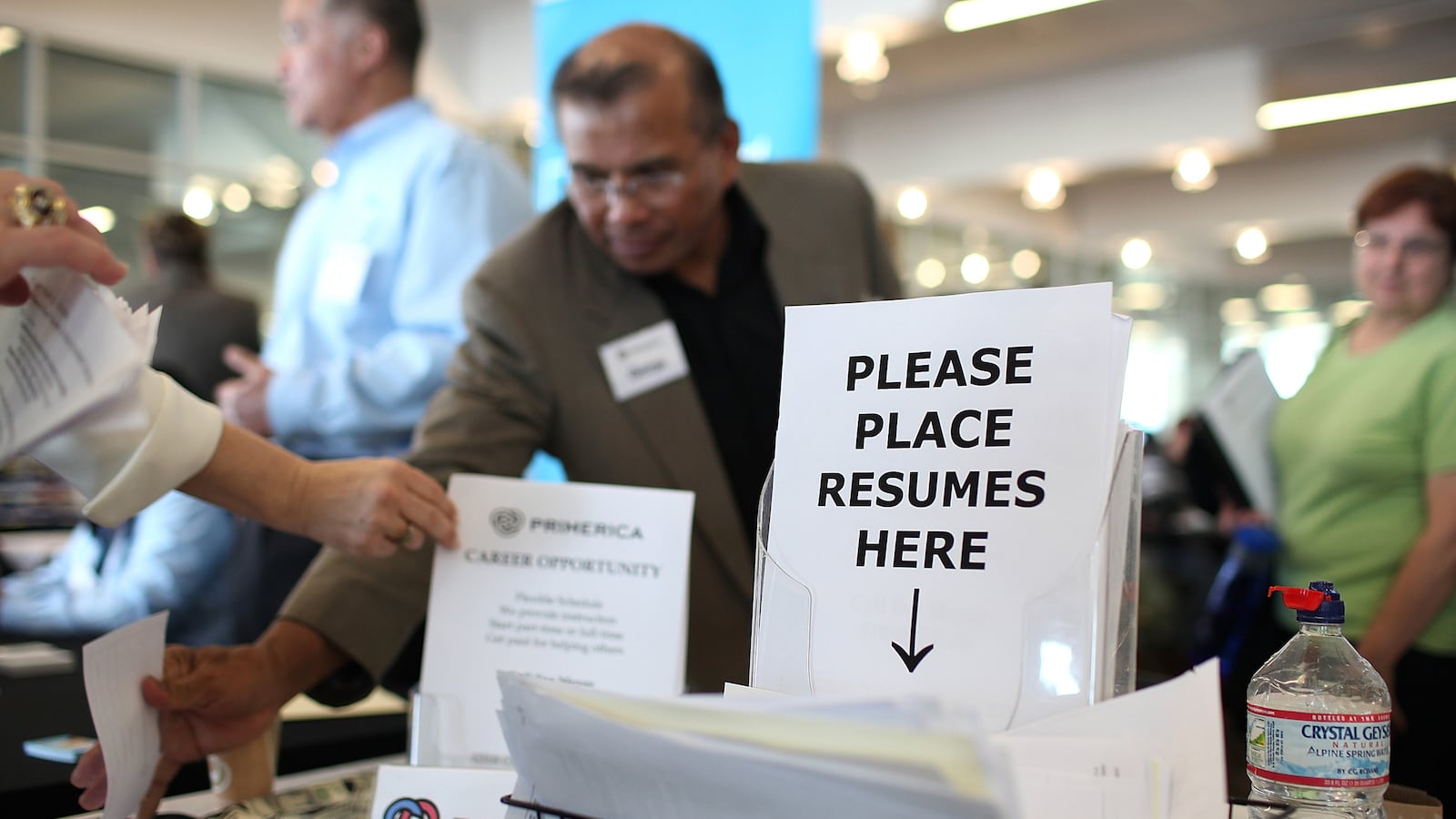
On Sunday, Kentucky Senator Rand Paul explained his opposition to $26 billion in extended unemployment benefits for more than 1.3 million workers. “I do support unemployment benefits for the 26 weeks that they’re paid for. If you extend it beyond that, you do a disservice to these workers,” he said in an interview on Fox News Sunday. “When you allow people to be on unemployment insurance for 99 weeks, you’re causing them to become part of this perpetual unemployed group in our economy,” he continued.
But this is wrong. The long-term unemployed are victims of timing; they lost their jobs at the start of the Great Recession, and were already long out-of-work by the following year, when the labor market began to improve in earnest. Additional stimulus would have helped—by filling the demand shortfall and strengthening the labor market–but Republican opposition left it off of the table. In other words, our inadequate response to the recession yielded a sluggish economy that can’t accommodate the millions of workers who lost their jobs in the initial crash and its aftermath.
Worse, employers all but punish people for their absence from the workforce. In the eyes of a potential employer, being out of work for longer than nine months is equal to losing years of experience. Long-term joblessness—for the most part—is a recipe for permanent exclusion from the workforce, regardless of circumstances.
As for unemployment benefits? Rand Paul has it backwards. If generous benefits yield higher joblessness, it’s because people are more willing to stay in the labor market when they can afford food and shelter. Far from discouraging work, extending unemployment insurance would encourage people to look for jobs longer than they would have otherwise.
Unfortunately, while Paul is wrong on the effects of unemployment benefits, he might get his way on the policy. Yes, Democrats and Republicans—led by Senator Patty Murray and Rep. Paul Ryan, respectively—are negotiating a budget agreement, and yes, Democrats want to extend unemployment insurance for the next year. But conservative Republicans refuse to budge from the current spending levels, and right-wing groups like Heritage Action and FreedomWorks have already announced their opposition to a deal that raises spending. “It’s disingenuous for Republicans to surrender the only real spending reforms accomplished under the Obama Administration, and call that a deal," FreedomWorks President Matt Kibbe said in a statement. And according to Greg Sargent at the Washington Post, senior Democrats are willing to support a deal that doesn’t include an extension of benefits:
“Of course we’d want to have the extension in the budget deal,” the aide says. “But we’re dealing with Paul Ryan here. We’ve negotiated with Ryan to increase spending for the next two years in exchange for savings over the next 10 years. Replacing as much of sequestration as possible will be far better for families and the economy than the alternative, another CR at sequester levels — and we can’t let the perfect be the enemy of the good.”
It’s possible that Democrats could get an extension through Congress without tying it to a broader deal, but I wouldn’t hold my breath. Not only would the Senate have to break a likely Republican filibuster, but John Boehner would have to buck his conservative members and risk his standing. Either Congress extends unemployment insurance as part of the Murray-Ryan deal, or it doesn’t at all. And if it doesn’t, the economic costs are high: According to the Congressional Budget Office, we give up 200,000 jobs and a boost to GDP by rejecting an extension.
It’s fair to want a smaller federal budget, even if the difference is marginal. In this case, however, it’s not worth the price in economic growth. But if Republicans couldn’t see this in 2011 or 2012—when they demanded even larger spending cuts—I doubt they’ll see it now.






